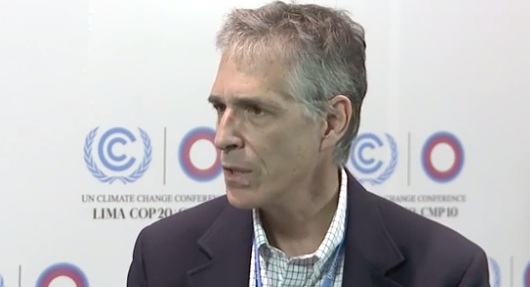
BOGOR, Indonesia—Financing and land tenure have snagged a global mechanism aimed at curbing carbon emissions through avoided tropical deforestation, according to a leading expert.
The initiative, known as Reducing Emissions from Deforestation and forest Degradation (REDD+), “is not heading in the direction that was expected, and it’s falling short of the mark,” according to William Sunderlin, principal scientist at the Center for International Forestry Research (CIFOR).
Sunderlin is a co-editor of “REDD+ on the Ground: A Case Book of Subnational Initiatives Across the Globe,” a book of case studies published 3 December about 23 REDD+ initiatives in six countries.
Once considered a leading option for slowing climate change when it was conceived in 2007, REDD+ is struggling in the absence of an international agreement that could help to assure financing to pay for the opportunity costs of local people in tropical forest countries to avoid converting forest areas for other uses, such as agriculture.
Speaking to Responding to Climate Change (RTCC) at the UNFCCC COP20 in Lima, Sunderlin said that the initiative initially assumed “billions a year” to pay for these opportunity costs. “Actually, the money has fallen far short of that,” he said.
A more pressing problem, Sunderlin says, is land tenure—in short, the right to own and manage a given area of land.
Long-standing interests that have derived benefits from the conversion of forests “have long had the upper hand,” he said. “Just as importantly, those interests operate in an environment that has favored them.”
Watch Sunderlin’s full interview with RTCC, below. Click here to read more about “REDD+ on the Ground.”
We want you to share Forests News content, which is licensed under Creative Commons Attribution-NonCommercial-ShareAlike 4.0 International (CC BY-NC-SA 4.0). This means you are free to redistribute our material for non-commercial purposes. All we ask is that you give Forests News appropriate credit and link to the original Forests News content, indicate if changes were made, and distribute your contributions under the same Creative Commons license. You must notify Forests News if you repost, reprint or reuse our materials by contacting forestsnews@cifor-icraf.org.